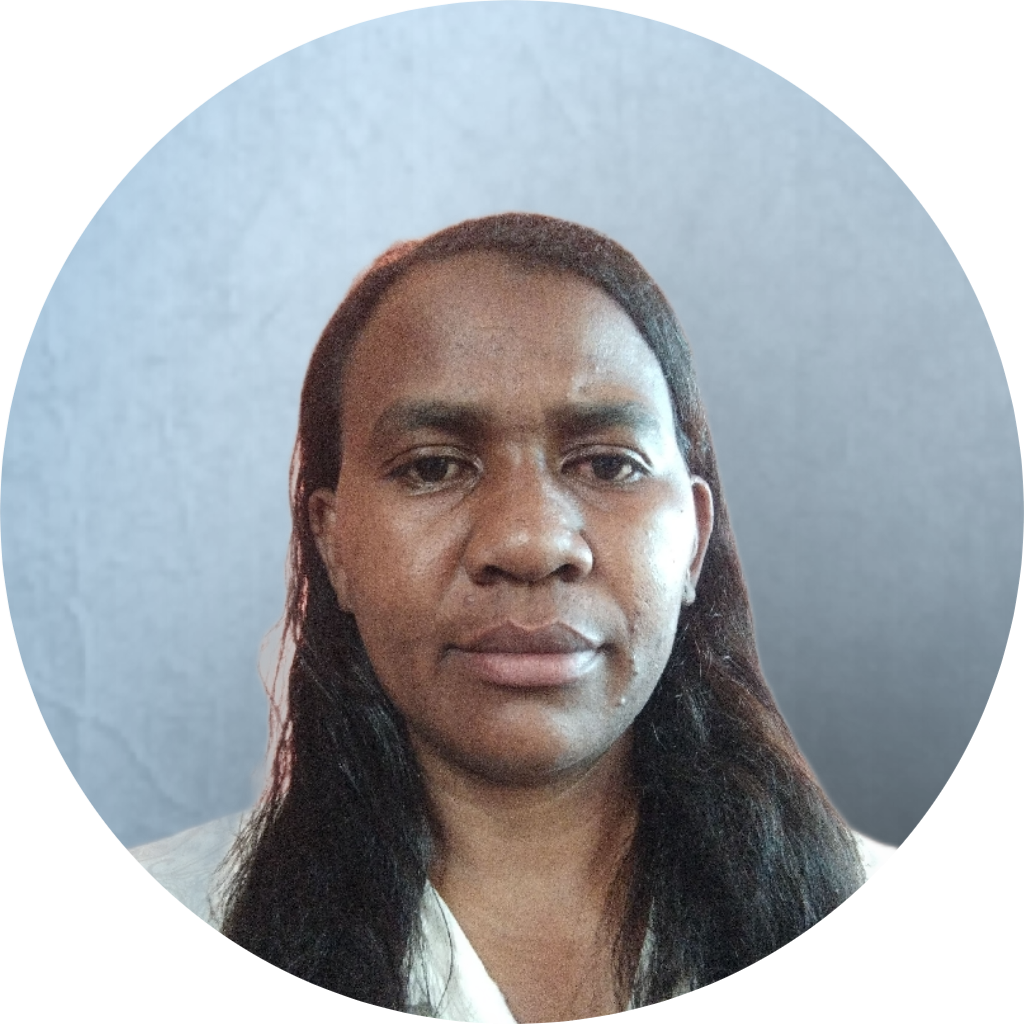
ABSTRACT The rise of Artificial Intelligence (AI) is transforming health communication significantly. This article explores the link between community engagement and AI-enhanced health communication, emphasizing how integrating AI can enhance public health interventions. Community engagement is vital for achieving sustainable health outcomes and fostering ownership among community members. The 2021 Global Health Security Index reveals that many African nations are ill-prepared for health emergencies due to delayed surveillance, reporting, and ineffective communication among stakeholders. The combination of community involvement and technological advancements signals a shift towards more inclusive and effective health interventions in the region. This research investigates how community feedback influences the effectiveness and sustainability of AI-powered health communication initiatives. Findings indicate that community engagement fosters trust and acceptance while aiding in the customization of AI algorithms to reflect local languages and cultural nuances. Community input is essential for refining AI functionalities and enhancing the accuracy of health messages and disease surveillance data. Moreover, the research underscores the value of community-led design in overcoming accessibility barriers and addressing health inequities. For AI-enhanced health communication strategies to be truly transformative in Africa, they must go beyond technological implementation and actively incorporate community input. This ensures that interventions are culturally relevant and widely accepted.

Dr. Enock Mwakalila
Climate Change Vulnerability and Economic Resilience: A Dynamic Panel Analysis of African Economies

Dr. Enock Mwakalila
Climate Change Vulnerability and Economic Resilience: A Dynamic Panel Analysis of African Economies
ABSTRACT The African continent is very vulnerable to climate change as its economies primarily depend on sectors susceptible to climate change. Thus, the study empirically analyzes how this vulnerability affects African economic resilience. Panel data is collected from 45 African countries spanning 28 years from 1995 to 2022. The system Generalized Method of Moments (GMM) estimation technique is performed. The results show that climate change vulnerability harms economic growth and resilience in the region, especially with marked adverse impacts in habitat, food, and health sectors. These results underscore the critical importance of climate adaptation and mitigation policies that are economically stable, incorporate economic growth, and avoid detrimental effects. Therefore, policymakers in African countries need to implement holistic mechanisms to reduce the detrimental effects of climate change vulnerability towards economic resilience.

Mr Glen Maimela
The Practice of Sustainable Agricultural Farming by Small-scale farmers: Reflections from Liquified Cow Dung Manure

Mr Glen Maimela
The Practice of Sustainable Agricultural Farming by Small-scale farmers: Reflections from Liquified Cow Dung Manure
ABSTRACT "Small-scale farmers in South Africa, particularly in rural communities continue to rely heavily on artificial farming, overlooking the indigenous agricultural knowledge. The key influence is that artificial farming practices have become more accessible than indigenous agrarian knowledge. This paper aims to establish the effectiveness of liquified manure in enhancing sustainable agriculture in indigenous communities. The paper is centred on addressing the poor agricultural practice of liquified manure in establishing indigenous agriculture knowledge culture in rural communities in the Vhembe District. A sample of 28 participants consisting of 11 small-scale indigenous farmers, 2 traditional leaders, and 2 agricultural experts was drawn using purposive sampling from Vuwani rural communities. Qualitative semi-structured interviews and focus group discussions were employed for data collection and analysis using thematic analysis. The study unveiled that small-scale farmers use liquified manure for economic value because modernity has normalised artificial farming over indigenous agricultural practices. This study develops further on existing research that advocates for Afro-sensed approaches in creating economic value for rural communities. It emphasises that indigenous agricultural practices such as liquefied manure can be used to create economic value along with artificial agricultural practices. Keywords: Small-scale farmers, artificial farming, indigenous agricultural knowledge, liquified manure. "

Dr Sorsy Dela
L'union Africaine En Action : Pour Un Développement Inclusif Et Durable À Travers Des Initiatives Panafricanistes Communes

Dr Sorsy Dela
L'union Africaine En Action : Pour Un Développement Inclusif Et Durable À Travers Des Initiatives Panafricanistes Communes
ABSTRACT Cette recherche examine la vision de l'Union Africaine (UA) pour une Afrique unie et intégrée, inspirée des idéaux panafricanistes, et met en lumière le décalage entre cet idéal et la réalité d'une absence de projets communs entre États africains. Bien que l'Agenda 2063 promeuve un développement durable et inclusif, le manque de coordination et d'initiatives véritablement panafricanistes freine sa mise en œuvre. La recherche défend l'idée que le succès de cet agenda repose sur des projets continentaux financés et gérés par les États africains eux-mêmes, plutôt que par des initiatives privées isolées. En analysant les politiques actuelles de l'UA et divers projets, cette étude propose qu'une nouvelle génération de patriotes panafricanistes pourrait être la clé pour mener et pérenniser ces initiatives. Elle explore également les conditions requises, telles que la volonté politique, l'engagement citoyen et la coopération entre États, afin de concrétiser cette vision. Enfin, des recommandations sont formulées pour aligner les actions de l'UA avec les objectifs de l'Agenda 2063, afin de bâtir une « Afrique intégrée, prospère et pacifique » capable de s'imposer sur la scène internationale.

Lebogang Peter Khoza
Artificial Intelligence: A New Global System, a Genocidal Project or the revival of the tokoloshe culture?

Lebogang Peter Khoza
Artificial Intelligence: A New Global System, a Genocidal Project or the revival of the tokoloshe culture?
ABSTRACT In the context of inclusive innovation, artificial intelligence (AI) presents opportunities to address inequality and social exclusion by integrating fairness, inclusivity, and representation. Despite AI’s advantages, such as being a transformative force in the global landscape, affecting traditional labour systems, and becoming a part of our daily lives, it is essential to consider its potential downsides, including the risks of deepening inequalities and enhancing the digital divide. This article explores the multifaceted nature of AI, questioning whether it signifies the development of a new global system, risks becoming a “genocidal project,” or poses challenges to traditional African ways of being. We illustrate this by comparing AI usage and African Epistemologies to understand how both possess a dual nature in their adaptability and versatility, shaping our daily lives. Using the African Epistemological lenses of Ubuntu and the African folklore of the tokoloshe, we integrate academic evidence and policy analysis to argue that AI’s replacement of human labour constitutes economic genocide, disproportionately impacting less advantaged people by exacerbating inequality and unemployment. This paper aims to contribute to the study of inclusive innovation by situating AI within African experiences, underscoring the philosophy of Ubuntu, and emphasizing humanness in AI development in Southern Africa. Policy recommendations highlight the importance of equitable access to technology and ethical considerations to prevent harm and marginalisation, underscoring AI’s potential for inclusive innovation.

Dr Nhlanhla Hlongwa
Advancing Sustainable Development in South Africa: Aligning with AU Agenda 2063 through Just Energy Transition Initiatives

Dr Nhlanhla Hlongwa
Advancing Sustainable Development in South Africa: Aligning with AU Agenda 2063 through Just Energy Transition Initiatives
ABSTRACT " This study examines South Africa's strides in inclusive and sustainable development through Just Energy Transition (JET) initiatives aligned with the African Union’s Agenda 2063 and UN Sustainable Development Goals. It explores the nation's coal transition via renewable programs like the Renewable Energy Independent Power Producer Procurement Programme (REIPPPP) and global partnerships. Notable advancements in solar and wind capacity have generated over 50,000 renewable sector jobs, though coal-dependent regions like Mpumalanga face job losses. The $8.5 billion Just Energy Transition Partnership (JETP) launched at COP26 aids the transition, but regulatory and infrastructure challenges have hindered project scaling. Emphasis is placed on boosting energy storage, modernizing grids, and implementing reskilling programs for a fair transition. Green hydrogen's role is also highlighted as an economic and energy diversification opportunity. The study underscores regional cooperation and South Africa's renewable energy leadership as a model for Africa in tackling environmental and socio-economic issues. Policy recommendations call for regulatory reforms, infrastructure upgrades, and strengthened international partnerships to ensure sustainable, equitable, and inclusive energy progress."

Mr Mustapha Abdulai Kargbo
How Weak Governance Structure And Human Rights Abuses Fuel Insecurity And Hinder Peace-Building Efforts In Africa; Sierra Leone

Mr Mustapha Abdulai Kargbo
How Weak Governance Structure And Human Rights Abuses Fuel Insecurity And Hinder Peace-Building Efforts In Africa; Sierra Leone
ABSTRACT This article addresses the complex interrelationship between weak governance structures, human rights violations, and insecurity in Sierra Leone to assess the impact of these variables on peace-building within a post-conflict environment. This qualitative case study research takes up governance challenges like corruption, lack of accountability, and weak political structures coupled with human rights violations to yield instability. Through the analysis of historical and current governance problems of Sierra Leone, the article identifies critical barriers to sustainable peace and lessons that can be applied to similar contexts in Africa. Recommendations for governance reforms, strengthened human rights protection, and community engagement are offered, noting how these are critical steps toward breaking the cycle of insecurity and building long-term peace in fragile states.

Mr Martin Emmanuel Komba
The Profit Efficiency of CSA Techniques: An illustration of the System of Rice Intensification in Mvomero, Tanzania.

Mr Martin Emmanuel Komba
The Profit Efficiency of CSA Techniques: An illustration of the System of Rice Intensification in Mvomero, Tanzania.
ABSTRACT The System of Rice Intensification (SRI) has been mostly recommended as rice production given climate change impacts like droughts at our disposal. Agronomically, SRI irrigation is known to be more efficient in water use than its alternative, convectional rice farming (CRF). Again, SRI emits less methane over its alternative. This study investigated profit efficiency of 120 smallholder rice farmers in Mvomero, where the analyses was made by comparing SRI with its alternative. The analytical frameworks comprised of Gross Margin (GM) and Stochastic Profit Frontier (SPF) estimation. Results from GM analysis indicated that the profit per acre accrued in SRI and Convectional group of farmers was TZS 925 425.8 and 436 746 respectively, indicating that although SRI farming practice in the study area was found being costlier than convectional rice farming, yet, SRI farming practice was more profitable than convectional rice farming. It was then found from SPF model that cost for labor statistically reduced profit efficiency of SRI group of farmers more than their colleagues in convectional rice farming. Also, cost for agrochemicals had more detrimental effect on profit efficiency in SRI group of farmers than farmers in convectional rice farming. Further, it was found that for SRI group of farmers, profit inefficiency was significantly lowered by engagement in non-rice activities, form of rice sold and use of extension services. The study therefore recommends agrochemical free rice production which is less expensive than its alternative, also in order to decrease economic inefficiency in SRI, value addition to paddy is essential.

Dr Faith Tinonetsana
Integrating AI in Teaching, Learning, and Research at Higher Education Institutions: Cyber Attack Risks

Dr Faith Tinonetsana
Integrating AI in Teaching, Learning, and Research at Higher Education Institutions: Cyber Attack Risks
ABSTRACT Integrating Artificial Intelligence (AI) in higher education institutions (HEIs) presents significant opportunities for enhancing teaching, learning, and research. However, HEIs have become the main targets for cyberattacks due to the large sensitive data stored within these institutions, including personal information of students, research data, and financial records, making them attractive targets for cybercriminals seeking to exploit the information for financial gain or malicious purposes. This paper seeks to examine the cyber threats associated with AI integration in HEIs, assess the cybersecurity readiness and awareness among stakeholders, and propose a framework to address potential cyberattacks, guided by international best practices. The findings indicate that cyber threats associated with AI integration in HEIs include phishing attacks, ransomware, and data breaches. Assessment of cybersecurity readiness and awareness among stakeholders in South African HEIs shows significant gaps in cybersecurity knowledge and preparedness among faculty and staff. Despite training, it lacks relevance to the academic context, and institutional policies often fall short due to limited enforcement and outdated frameworks, indicating areas for improvement in cybersecurity practices. Finally, a framework was developed to prevent cyberattacks using world standards like NIST, ISO27002, COBIT, OWASP and NCSC. By synthesising elements from these frameworks, the framework is comprehensive and adaptable, covering various dimensions of cybersecurity: policy, operational resilience, governance, application security, and threat intelligence.
- Phone:+1 (859) 254-6589
- Email:info@example.com

Mr Vincent Nkundimana
Dynamics of M23 Rebellion and Prospects for Peace in North Kivu.

Mr Vincent Nkundimana
Dynamics of M23 Rebellion and Prospects for Peace in North Kivu.
ABSTRACT This study analyzes the M23 conflict in North Kivu, Eastern DR Congo, highlighting its historical, ethnic, and geopolitical origins, which pose challenges to peace in the region. Employing a secondary data approach, the research investigates the persistent effects of colonial divide-and-rule policies, post-independence marginalization of Rwandophone communities, competition for resources, and the lingering impact of the 1994 Rwandan genocide. The alleged involvement of neighboring countries — Rwanda, Uganda, and Burundi — deepens the conflict's complexity. The study advocates a multi-layered approach for sustainable peace: the DR Congo Government should focus on addressing root causes through diplomacy and collaborative security and humanitarian efforts. The M23 Movement must commit to peaceful dialogue, human rights accountability, and disarmament. Regional and international actors should support stability and diplomacy with respect for non-interference, emphasizing localized solutions. Additionally, humanitarian organizations should enhance coordination, ensure ethical standards, and secure vital funding, while civil society fosters unity and reconciliation among North Kivu’s diverse communities.

Ms Stella Nansamba
Feminist Climate Justice: Gender-Responsive Strategies for a Just Transition in the Global South

Ms Stella Nansamba
Feminist Climate Justice: Gender-Responsive Strategies for a Just Transition in the Global South
ABSTRACT The Global South, particularly Africa, bears the brunt of climate change, despite contributing minimally to the crisis. Women, who are more dependent on natural resources and face socioeconomic and political barriers, are disproportionately affected. Climate discussions often exclude these marginalized voices, perpetuating existing inequalities and undermining the development of context-specific solutions. The absence of feminist perspectives in climate action hinders the creation of strategies that address root causes such as neoliberal capitalism, patriarchy, and neocolonialism. The research explores how feminist intersectional approaches can transform climate justice while emphasizing the need to reimagine gender mainstreaming by addressing systemic inequalities in power dynamics, resource distribution, and decision-making processes. Women’s agency must be built through capacity strengthening rather than mere financial aid, recognizing their crucial role in community-based climate solutions. The findings highlight that localized climate finance and indigenous knowledge are key to sustainable, long-term climate resilience. Despite the overwhelming impact of corporate greed and mass resource extraction, grassroots innovations from women and rural communities prove more effective in addressing climate challenges. However, only 1 out of 10 USD of climate finance reaches local levels, a gap that must be urgently addressed. The findings highlight the importance of addressing gendered dimensions in climate action and prioritizing locally-driven solutions to ensure a just, inclusive transition.

Ms Jacqueline Patrick Majuva
Farmers’ Willingness to Pay for Certified Improved Maize Seed in Kilosa and Mvomero District Using Field Experiment Approach

Ms Jacqueline Patrick Majuva
Farmers’ Willingness to Pay for Certified Improved Maize Seed in Kilosa and Mvomero District Using Field Experiment Approach
ABSTRACT "Agriculture is critical to Tanzania’s economy, with maize as a staple crop vital for both food security and income in both rural and urban communities. Despite its importance, maize yields lag behind potential due to limited use of productivity enhancing technologies like fertilizers and certified improved seeds. This study estimates willingness to pay and investigates the factors affecting smallholder farmers’ willingness to pay (WTP) for improved maize seeds, offering data driven insights to support policies that promote sustainable farming and food security. Household surveys and field experiments with 208 maize-producing households revealed that high seed costs averaging Tshs 13492 and 13521 in Kilosa and Mvomero respectively deter adoption, with 94% of farmers citing price as a barrier. Using the Becker-DeGroot-Marschak (BDM) method, farmers were willing to pay Tshs 5377 and 4853 for certified and non-certified seeds, respectively; the Take-It-or-Leave-It (TIOLI) method showed higher WTP at a price of Tshs 5000, with 59% for certified and 50% for non-certified seeds. Factors influencing WTP include sex, formal group membership, and slope of the land. The study recommends seed adoption enhancing initiatives including government subsidies, farmer education, and cooperative promotion to improve productivity and smallholder livelihoods. Keywords: Willingness to pay, certified, maize seeds, BDM, TIOLI "

Mr Japheth Otieno Ondiek
AI decision making and accountability for gender and equality representation in social protection policies in Africa.

Mr Japheth Otieno Ondiek
AI decision making and accountability for gender and equality representation in social protection policies in Africa.
ABSTRACT "AI based decision-making and accountability for social policy has the capability to improve gender inequalities and promotes women empowerment through social protection systems that are devoid of bias in determination in selection. AI based accountability potentially creates gender-responsive social protection systems to strengthen women and girls and their communities to ensure that no one is left behind in 2030 agenda. Similarly, through AI, it is possible to improve data disaggregation and quality analysis to be used for research and evidence on policy to improve social protection effectiveness in developing country context. However, lack of accountability mechanism driven by AI and data bias has made it difficult to measure and evaluate the progress of social protection especially on how women benefit. Therefore, this study is focused on exploring the AI decision-making and accountability framework and policies that can be used to evaluate the commitments and action plans for social protection for women. Equally, this research explores biases that inherently inhibits gender equality in social protection and provides insights into the role of AI accountability and decision-making in mitigating biases. Using empirical qualitative review of selected cases of AI accountability and decision-making, the research outlines concrete AI policy framework for gender and equality representation in social protection in Africa. "

Mr Selela Mwakalila
Leveraging Climate-Smart Agroecological Innovations to Enhance Smallholder Resilience and Transform Tanzania's Food Systems

Mr Selela Mwakalila
Leveraging Climate-Smart Agroecological Innovations to Enhance Smallholder Resilience and Transform Tanzania's Food Systems
ABSTRACT "In the face of increasing climate variability, resource scarcity, and post-harvest losses, smallholder farmers in Tanzania face significant challenges in achieving sustainable agriculture and resilient food systems. This study investigates the role of climate-smart agroecological innovations in transforming the agricultural landscape of Tanzania, focusing on enhancing the resilience of smallholder farmers. Using a mixed-methods approach, data were collected through surveys and interviews with 300 smallholder farmers across four agro-ecological zones in Tanzania. The study evaluated the effectiveness of climate-smart technologies such as drought-resistant crops, efficient water-use systems, and organic pest control methods in improving yields and reducing environmental impacts. The findings revealed that adopting these agroecological practices resulted in a 20% increase in crop productivity and a 30% reduction in post-harvest losses. Moreover, farmers employing these practices demonstrated higher resilience to climate shocks, with an improved ability to maintain food security during droughts and extreme weather events. The study also highlighted key barriers to widespread adoption, including limited access to resources, technical knowledge, and supportive infrastructure. This research concludes that climate-smart agroecological innovations not only enhance the productivity and resilience of smallholder farmers but also play a crucial role in transforming food systems in Tanzania. Policy recommendations include increased investment in agricultural extension services, improved access to financial resources for smallholders "

Mr Babatunde Moses Alao
Adoption and Regulation of Artificial Intelligence (AI) Tools in Public Universities in South-West Nigeria

Mr Babatunde Moses Alao
Adoption and Regulation of Artificial Intelligence (AI) Tools in Public Universities in South-West Nigeria
ABSTRACT "There is an imbalance in the current state of adoption and regulation of artificial intelligence (AI) tools in Nigeria's public universities when compared with their African and global counterparts. This disparity in AI development revealed the need for ICT experts, academics, administrators, and policymakers to intensify their engagement in the field of Artificial Intelligence. The adoption of AI tools coupled with enhanced infrastructural facilities brings about prospects in teaching and learning for the universities adopting them. Although this may also pose challenges like adoption concerns, regulation issues, standardization, lack of skills and practical expertise, and ethical concerns that jeopardize fairness and equity in the administration of AI tools. This study centres on bridging the gap of lack of recommended policy framework that aids the effective adoption and regulation of AI tools for teaching and learning in the Nigerian university system. This study will adopt a mixed method, utilizing both quantitative and qualitative data collection tools such as digital surveys, in-depth interviews (IDI), and key informants interviews (KII). The participants will be students, lecturers, ICT experts, and deputy vice-chancellors (academic). The findings will be used to recommend an informed policy framework for successful integration, as well as equitable and all-inclusive administration of AI tools to meet the best international standards and help achieve the Agenda 2063 goals of the African Union (AU)."

Mr Abiola Akande
Artificial Intelligence (Ai) Technology As A Tool To Drive Economic Development In Nigeria: Cge Analysis

Mr Abiola Akande
Artificial Intelligence (Ai) Technology As A Tool To Drive Economic Development In Nigeria: Cge Analysis
ABSTRACT This paper examines the importance of artificial intelligence technology to drive economic development in Nigeria. Technology has been identified as the wheel of economic growth and employed in developed countries. However, most developing countries, especially Nigeria, still lag in adopting technology (artificial intelligence) to drive productivity and prioritize development. Most studies on technology and economic growth have focused on the developed countries and the few on developing have employed time series and Panel data analysis. These approaches are good but limited because they failed to capture the economic-wide impact of artificial intelligence. This has necessitated this study using computable general equilibrium (CGE) which offers a more robust approach. This study employs a country recursive dynamic computable general equilibrium model using the Nigeria 2019 Social accounting matrix (SAM) as a database. The baseline scenarios incorporated two policy scenarios which are 5% and 10% increase in artificial intelligence infrastructure in Nigeria. Findings revealed that artificial intelligence raised investment, sectoral output, government revenue, trade performance, and economic development. Also, the household’s welfare (in terms of income and consumption) improved for skilled labour households. However, unskilled and informal labour were found to be vulnerable to the policy scenarios because they were displaced and lacked adequate skills and education to be competitive in the labour market. Thus, the study concluded that artificial intelligence enhances economic growth and productivity.

Dr Moloko Mathipa-Mdakane
Designing equitable models for a just transition in research and innovation

Dr Moloko Mathipa-Mdakane
Designing equitable models for a just transition in research and innovation
ABSTRACT Just transition had gained prominence as global climate goals became increasingly urgent. To drive innovative research addressing environmental challenges, there had also been a growing need to ensure that socio-economic inequalities were not worsened by this transition. This study investigated how funding models could be structured to support research that promotes a just transition, focusing on long-term socio-economic impacts. Additionally, it examined the role of policymaking in supporting these solutions, either through the creation of new policies or by adapting existing ones. Current funding models were analysed to identify gaps where social equity and long-term impacts might have been overlooked. Innovative funding structures, such as public-private partnerships and innovation grants, were reviewed to assess how they contribute to supporting just transition research. The study also included case studies of successful funding initiatives in green technology and industry transitions. Findings highlighted funding models that effectively promote long-term socio-economic benefits while ensuring fairness in the transition to sustainable practices. The analysis revealed how aligning research with policy amplified the impact of funded projects, making them more scalable and effective. This study provides a clear framework for funding bodies, policymakers, and researchers to collaborate in achieving a just transition that balances economic growth, environmental sustainability, and social equity. It offers practical insights into how funding mechanisms can drive innovation and support fair outcomes for all stakeholders.

Ms Mutale Chambanenge
Effects Of A Country's Geographical Location On National Food Security In The Sadc Region

Ms Mutale Chambanenge
Effects Of A Country's Geographical Location On National Food Security In The Sadc Region
ABSTRACT Efforts to address food insecurity have persisted since the end of World War II, yet the issue continues to escalate globally, particularly in Africa. The Southern African Development Community (SADC) region, one of the hardest-hit areas, saw 48% of its population facing food insecurity in 2021, marking a 5.5% increase from 2020. This persistent challenge is attributed to several factors, including unique geographical characteristics, transportation issues, and adverse weather conditions. Achieving the second Sustainable Development Goal (SDG) — to end hunger, achieve food security, improve nutrition, and promote sustainable agriculture — necessitates strong economic relations among SADC countries. Understanding how food security indicators vary across these countries is crucial, yet there is a notable absence of empirical evidence on this aspect. This research employed descriptive analysis to explore food security indicators across the sixteen SADC countries, focusing on the mean values of different indicators without influencing the variables. The findings confirm that food security remains a significant challenge in the SADC region, particularly for Landlocked Developing Countries (LLDCs) and Small Island Developing States (SIDS). Specifically, LLDCs exhibit low average dietary energy supply adequacy, and both LLDCs and SIDS have low average values of food production per capita.

Mr Clifford Mhlanyukwa
Post‐1994 South Africa's peacekeeping and military intervention

Mr Clifford Mhlanyukwa
Post‐1994 South Africa's peacekeeping and military intervention
ABSTRACT "South Africa, once a pariah state because of the apartheid regime destabilisation policies in Southern Africa and became a full fledge democratic state following the victory of the African National Congress (ANC) in the first and all‐inclusive democratic elections of 1994. The ANC's vision for Southern Africa was to be routed on the notion of curbing the imbalances of the past (pre‐1994), which had cost the Southern African region great economic loss. Here, one of the many fundamentals that were to drive the ANC's foreign policy doctrine was that of conflict resolution for a more stable and prosperous Africa particularly Southern Africa. Conflict resolution was viewed as a pivotal element for the new democratic government to stimulate beneficial relations with other African states post the apartheid era. Considering the above, and using a qualitative method approach, this paper draws a nuanced appraisal and examines the role of South Africa's peacekeeping and mediation initiatives in the Democratic Republic of Congo (DRC) and Lesotho post‐1994. In conclusion, South Africa has been able to utilize its regional hegemonic stance to ensure regional security while ensuring economic stability at home. Key words: Post‐1994 in South Africa, apartheid, peacekeeping, stability, conflict resolution, and military intervention

Ms Nedombeloni Rudzani
Strategies for Improving Water Governance on Small-holder Irrigation Schemes in Rural Communities, South Africa

Ms Nedombeloni Rudzani
Strategies for Improving Water Governance on Small-holder Irrigation Schemes in Rural Communities, South Africa
ABSTRACT Small-holder farmers in rural communities of South Africa are confronted with irrigation challenges that negatively affect their agricultural practices. This is majorly influenced by a lack of rules and regulations to ensure that small-holder farmers have access to adequate water for their agricultural practices. In light of this challenge, this paper explores the inclusive strategies that can improve water governance for small-holder irrigation schemes in South African rural communities particularly in Nzhelele area. The study purposively sampled 24 small-holder farmers from Nzhelele area. Thus, qualitative data was generated using face-to-face semi-structured interviews and analysed thematically through ATLAS.ti version 8.0 software. The study unveiled that for effective water governance, there is a need for heavy punishment and penalties such as double fines for small-holder farmers found guilty of excessive use of water. The study further unveiled that water governance institutions may need to develop a water distribution plan using a bottom-up approach that is tailored to support small-holder farmers in rural communities.

Dr Lucia Masilela
Digital Twin Technologies: An Integrated Tool for Reshaping the Nature of Public Sector Service Delivery Mechanisms

Dr Lucia Masilela
Digital Twin Technologies: An Integrated Tool for Reshaping the Nature of Public Sector Service Delivery Mechanisms
ABSTRACT Digital Twin Technologies have been identified as integrated digital tools and mechanisms that consists of all components related to advanced technologies such as Artificial Intelligence (AI), machine learning, data mining, cognitive systems, and the Internet of Things (IoTs) that can be incorporated to provide guidance towards challenged service delivery mechanisms for the sector public. The use of Digital Twin Technologies can provide public sector institutions with future orientated insights through a digital representation of its internal systems, processes, services and physical goods through the collection and cross comparison of historical data sets and future insights to provide in-depth knowledge and information towards the proposed outcomes, advantages, disadvantages and constraints of individual or collective service delivery outputs. This article will make use of a qualitative research approach coupled with a rapid review. The rapid review will systematically analyse private and public sector research reports, authoritative scholarly articles, and unsolicited government documents. The results of this article have therefore identified that the adoption and implementation of Digital Twin Technologies can be utilised as a real time forecasting tool to assist the public sector to determine the feasibility, reachability, accessibility, and usability of one or more of its service delivery outputs and how it will impact on the communities in which they are designated for.

Mrs Ekodo Bekono Brigitte Audrey
Governance as administrative performance in the service of female entrepreneurship in a decentralizing Cameroon.

Mrs Ekodo Bekono Brigitte Audrey
Governance as administrative performance in the service of female entrepreneurship in a decentralizing Cameroon.
ABSTRACT "This article analyzes governance in Cameroon, through the impact of gender policies in decentralization and local development reforms, specifically examining their influence on the performance of the Cameroonian administration in terms of female entrepreneurship. The issue raised for this purpose is the following: How do gender policies contribute to strengthening the effectiveness of decentralization and local development reforms to promote female entrepreneurship in Cameroon? The context of decentralization and local development reforms in Cameroon has seen the establishment of legal and institutional provisions to promote gender equality and women's empowerment, as well as specific programs to support female entrepreneurship. Drawing on feminist theories according to Falquet J. (2005), the capabilities approach of Amartya Sen according to Monnet E. (2007) and the institutional theory of Max Weber according to Belley (1988), we will see along this article how by acquiring the necessary skills to assimilate the issues and challenges linked to the understanding of gender policies, the Cameroonian administration will be able to better legally and socially supervise female entrepreneurship, in a perspective of local development. This analysis being carried out in a context of decentralization, the article specifically examines the impact of gender policies in the performance of the administration of the municipality of Yaoundé 1 to support women entrepreneurs in the district.

Dr Nokubonga Makhanya
Amino-Functionalized MOFs for Biogas Purification and Predictions Using Machine Learning

Dr Nokubonga Makhanya
Amino-Functionalized MOFs for Biogas Purification and Predictions Using Machine Learning
ABSTRACT "Anaerobic digestion generates raw biogas from waste organic materials through complex biochemical processes. The application of the AD process and utilization of biogas is increasing as a renewable energy source. Raw biogas generated in the AD process contains several undesired constituents such as H 2 S, CO 2 , NH 3 , siloxanes and volatile organic compounds (VOCs). Comprehensive biogas purification is required prior to its application, i.e. to generate electricity or to upgrade to biomethane quality as green alternative fuel to natural gas. To promote sustainable development and environmentally friendly technologies, biogas purification technologies can be applied. Renewable technology such as metal organic frameworks adsorbents have the potential for biogas purification owing to their intriguing characteristics such as the great specific surface area, extremely high porosity, changeable pore size, post-synthesis modification. The functionalization of MOF is effective strategy for altering the interaction between the MOF framework and the guest species in order to obtain high gas capacity. Machine learning is an AI tool, and has become a valuable tool in chemical engineering, offering new possibilities for optimizing processes and solving complex challenges. It has the potential to overcome the limitations of mechanistic modelling, as ML methods can learn complex behaviours and adapt to new data."

Dr Mamie Albertine Ratsaramiafara
Adaptation au changement climatique et popularisation des savoirs: des politiques de transition énergétique justes et inclusives?

Dr Mamie Albertine Ratsaramiafara
Adaptation au changement climatique et popularisation des savoirs: des politiques de transition énergétique justes et inclusives?
ABSTRACT Le monde est en retard dans la réalisation des objectifs de développement durable de l’agenda 2030, notamment l’objectif 13 visant la prise d’urgence des mesures pour renforcer l’adaptation face aux aléas et catastrophes climatiques. De ce fait, reconsidérer les politiques de mitigation et d’adaptation est un impératif d’où la nécessité de mener des réflexions approfondies à la recherche d’une approche plus pertinente pour que les stratégies d’adaptation soient effectives en matière de changement climatique. Dans plusieurs pays de l’Afrique subsaharienne, en l’occurrence Madagascar, la transition vers l’énergie renouvelable avance tant bien que mal. Nombre de groupes sociaux et diverses localités de la grande île sont en marge vis-à-vis des savoirs, des politiques et des nouvelles pratiques liées au changement climatique. Faute de connaissance, le changement climatique est mal perçu et l’utilisation des nouvelles sources d’énergie (solaire et éolienne) ne sont pas à la portée de tous. Cette étude essaie de mener des enquêtes et des sondages auprès de différents groupes sociaux sur leur niveau de connaissance en matière de changement climatique et d’énergie renouvelable. Cela permettra de réviser les politiques nationales d’adaptation existantes en traduisant les documents académiques existants ainsi que les savoirs locaux pertinents en politiques plus appropriées. Ces nouvelles stratégies politiques revaloriseront le capital humain lors de l’élaboration des programmes d’adaptation pour une transition énergétique juste et inclusif dans un futur proche.
English The world is behind schedule in achieving the Sustainable Development Goals of the 2030 Agenda, particularly Goal 13 aimed at taking urgent measures to strengthen adaptation to climate hazards and disasters. Therefore, reconsidering mitigation and adaptation policies is imperative, hence the need to conduct in-depth discussions in search of a more relevant approach so that adaptation strategies are effective in terms of climate change. In several sub-Saharan African countries, in this case Madagascar, the transition to renewable energy is progressing as best it can. Many social groups and various localities on the Big Island are on the fringes of knowledge, policies and new practices linked to climate change. Due to a lack of knowledge, climate change is poorly perceived and the use of new energy sources (solar and wind) are not within everyone's reach. This study attempts to conduct surveys and polls among different social groups on their level of knowledge regarding climate change and renewable energy. This will make it possible to revise existing national adaptation policies by translating existing academic documents as well as relevant local knowledge into more appropriate policies. These new political strategies will revalue human capital when developing adaptation programs for a just and inclusive energy transition in the near future.

Ms Sheila Likhwechi Ashiono
Innovative Public Private Partnership Initiatives Enhancing Food Security At Chakama Irrigation Scheme, Kenya

Ms Sheila Likhwechi Ashiono
Innovative Public Private Partnership Initiatives Enhancing Food Security At Chakama Irrigation Scheme, Kenya
ABSTRACT "The Kenyan government has overtime used Irrigation schemes strategy to enhance food security. Although some gains towards food security have been realized, most of the irrigation projects have either collapsed or are operating below capacity due to various dynamics thus, raising concerns over the sustainability of food production initiatives. The strategy involves capital intensive infrastructure and equipment to facilitate open canal and/or diesel driven water pump irrigation systems. However, innovative forms of Public Private Partnership emerged between the government and the communities in the semi-arid areas where the government supported farmers to use their farms for continuous food production. The innovation has facilitated access to farm inputs, irrigation infrastructure and Liquefied Petroleum Gas (LPG) powered water pumps to Chakama Small-Holder Irrigation Scheme in Kilifi County thereby bringing over 800 acres of land under irrigation hence, stabilizing food supply for the County. The paper using a case study of CSIS conducted twenty interviews and has demonstrated how rural communities in Kenya can seize opportunities through strategic partnership with the government to enhance low cost agricultural practices for sustainable food security. The paper has recommended the replication of the PPP initiatives anchored on Mutual-Felt-Needs model to not only the rest of Kenya but also Africa at large due to its low-cost water access technology and guaranteed sustainability.

Mr Akwesi Acquah
Assessing The Policy Landscape Of Ehealth In Africa: A Comparative Study Of Ghana, Kenya And South Africa

Mr Akwesi Acquah
Assessing The Policy Landscape Of Ehealth In Africa: A Comparative Study Of Ghana, Kenya And South Africa
ABSTRACT National eHealth Policy documents provide a roadmap for the adoption, implementation and evaluation of eHealth initiatives in a bid to prioritize and achieve national health outcomes. However, studies focusing on a comprehensive analysis of eHealth policy documents remain limited on the African continent. This study employed a qualitative content analysis research approach to develop a critical argument from previous research by focusing on the content of e-Health policies in three geographically disparate African Countries namely Ghana, Kenya and South Africa. The relevant national eHealth policy documents for these three countries were systematically retrieved, screened and reviewed using the Preferred Reporting Items for Systematic Reviews and Meta-Analyses (PRISMA) approach.The WHO-ITU toolkit was then used to guide and focus the analysis on three key areas: a) establishing a national eHealth vision, b) developing a national eHealth action plan, and c) monitoring and evaluation mechanisms. While the study revealed a clear national eHealth vision and implementation road map for all three countries, there were key differences in the scope, maturity and priority areas in their respective eHealth documents. The study makes a unique contribution to the body of knowledge by using the ITU-WHO tool kit as a consistent lens to assess and evaluate the national eHealth policy documents of three geographically diverse African countries and offering country-specific recommendations for eHealth policy revision and enhancement in these countries.

Dr Mbanam Bambot Valentine
A Cultural Anthropology Approach to Inclusive Plastic Waste Management in Cameroon"

Dr Mbanam Bambot Valentine
A Cultural Anthropology Approach to Inclusive Plastic Waste Management in Cameroon"
ABSTRACT The abstract discusses Cameroon's alignment with the AU Agenda 2063 on plastic waste management, climate action, and just transition. While the nation aims to meet the AU's goals through its National Development Strategy 2030, there are issues with inclusivity, particularly in involving household waste generators. A cultural anthropology approach is used to explore waste management, emphasizing socio-cultural influences and opportunities for inclusive policies. Though Cameroon shows commitment to a sustainable future, policies lack inclusivity for waste-generating actors. Recommendations include engaging households, community education, and cultural sensitivity in policy development for effective and inclusive plastic waste management and climate action aligned with AU Agenda 2063.

Ms Tshabalala Fortunate Nelisiwe
Evaluating the challenges faced by Nkomazi poultry farmers during blackouts (load shedding) and their impact on Profitability

Ms Tshabalala Fortunate Nelisiwe
Evaluating the challenges faced by Nkomazi poultry farmers during blackouts (load shedding) and their impact on Profitability
ABSTRACT "This research evaluates the challenges faced by Nkomazi poultry farmers during blackouts and their impact on Profitability. Primary data was collected at Nkomazi Municipality from 90 participants using a purposive sampling technique. Data was analysed using gross margin, and multiple Results revealed that rolling blackouts affected smallholder farmers’ profitability (81%) while others were not affected (19%). Additionally, frequent blackouts, load-shedding duration, significant losses, and disrupted operations were identified challenges encountered by smallholder poultry farmers due to rolling blackouts. Conclusions drawn: more women were involved in poultry production than men in the area studied. Interestingly, the empirical findings indicated that men yield greater profits compared to women. Hence, the study recommends empowering female smallholder poultry farmers with the necessary resources and improving their access to markets. "

Ms Dimpho Seponi Magdeline
Exploring the Intersection of Community Engagement and AI-Enhanced Health Communication.

Ms Dimpho Seponi Magdeline
Exploring the Intersection of Community Engagement and AI-Enhanced Health Communication.
ABSTRACT The rise of Artificial Intelligence (AI) is transforming health communication significantly. This article explores the link between community engagement and AI-enhanced health communication, emphasizing how integrating AI can enhance public health interventions. Community engagement is vital for achieving sustainable health outcomes and fostering ownership among community members. The 2021 Global Health Security Index reveals that many African nations are ill-prepared for health emergencies due to delayed surveillance, reporting, and ineffective communication among stakeholders. The combination of community involvement and technological advancements signals a shift towards more inclusive and effective health interventions in the region. This research investigates how community feedback influences the effectiveness and sustainability of AI-powered health communication initiatives. Findings indicate that community engagement fosters trust and acceptance while aiding in the customization of AI algorithms to reflect local languages and cultural nuances. Community input is essential for refining AI functionalities and enhancing the accuracy of health messages and disease surveillance data. Moreover, the research underscores the value of community-led design in overcoming accessibility barriers and addressing health inequities. For AI-enhanced health communication strategies to be truly transformative in Africa, they must go beyond technological implementation and actively incorporate community input. This ensures that interventions are culturally relevant and widely accepted.

Mr Leemisa Simon Matooane
Exploring Land Use Planning Approaches and Models Guiding Urban Food Systems in Maseru, Lesotho

Mr Leemisa Simon Matooane
Exploring Land Use Planning Approaches and Models Guiding Urban Food Systems in Maseru, Lesotho
ABSTRACT Fragmented land use planning approaches and models have affected the transformation of food systems in African cities, thereby increasing food insecurity due to the high and unplanned urbanisation rate. In Maseru, the challenges have been exacerbated by urban farming being considered a rural activity, neglecting the rapid growth in urban areas, which poses a significant challenge to innovative agriculture and food security. This paper explores the intersection of land use planning approaches and models used to strengthen Maseru's food systems. Using a qualitative methodology, the study used semi-structured interviews with key stakeholders, including the Ministry of Local Government and Chieftainship, Maseru City Council, Ministry of Agriculture, and community members. Findings reveal that land use planning approaches and models are critical tools that can be used to improve the food systems and related vital elements in Maseru. The paper argues that proper land use planning and management can bring a better understanding and guidance through policies on food systems within the urban environment and suggests inclusive planning that advocates for urban farming within African cities. The study demonstrates that land use planning can strengthen urban food security by focusing on four key areas: promoting sustainable urban food production, improving food distribution networks, enhancing access to nutritious and culturally appropriate foods, and managing food waste in an urban space.

Ms Pilela Majokweni
Pathways to Sustainable Agriculture: Understanding Farmers’ barriers to Advanced and emerging technology adoption in South Africa

Ms Pilela Majokweni
Pathways to Sustainable Agriculture: Understanding Farmers’ barriers to Advanced and emerging technology adoption in South Africa
ABSTRACT "The importance of agriculture to South Africa’s poverty reduction, food security and overall economic growth and socioeconomic development is one that cannot be overstated. However, the sector is continuously facing challenges related to climate change and resource scarcity; thus, there is a growing need for more sustainable practices. Recent years have highlighted the emergence of advanced technologies such as precision agriculture, smart breeding and soil sensors and their contribution to sustainable and innovative agricultural practices to improve efficiency and reduce negative environmental impact. Despite the potential benefits, when compared to its international counterparts, the adoption levels of these technologies by South African farmers is relatively low. This study seeks to explore and analyse the barriers that inhibit farmers from adopting emerging and advanced technologies. It will use primary data from the 2019-2021 Agricultural Business Innovation Survey to understand factors contributing to the low levels of technology adoption by farmers in South Africa. By highlighting these barriers, the research aims to offer a deeper understanding and emphasize areas for necessary and aligned policy interventions that will assist in creating an enabling environment for technology adoption. Moreover, the results aim to contribute to knowledge and efforts towards innovative agriculture and sustainable development in South Africa and the African continent at large. Keywords: barriers, agriculture, innovative, technology adoption, sustainable "

Dr Annastasia Noko Moloto
The role of the National Research Foundation in supporting climate change research in South Africa

Dr Annastasia Noko Moloto
The role of the National Research Foundation in supporting climate change research in South Africa
ABSTRACT The National Research Foundation (NRF) is instrumental in advancing research across critical sustainability areas, including agriculture, energy, biodiversity conservation, ocean health, and food security. These sectors are essential for mitigating climate change. This study examines the influence of NRF funding on South Africa's climate change mitigation efforts from 2018 to 2023. Data reveals that NRF provides diverse funding types, such as Global Change funding, postgraduate bursaries, and postdoctoral fellowships, to support innovative, resource-efficient solutions and technological progress in sustainability research.Despite the positive impact of NRF funding, the study identifies ongoing issues, including gender and racial disparities in leadership roles within funded initiatives and the limited availability of grants compared to the high demand. Such findings underscore the need for fairer leadership representation and more inclusive funding practices to boost NRF's potential in climate mitigation. Addressing these disparities can empower a wider range of perspectives and enhance sustainable solutions. The study advocates policy reforms to foster inclusivity in funding, encouraging diverse talent to contribute to South Africa's sustainability goals. This approach could position the NRF not just as a funding provider but as a catalyst for meaningful climate action and systemic change.

ABSTRACT "This research evaluates the challenges faced by Nkomazi poultry farmers during blackouts and their impact on Profitability. Primary data was collected at Nkomazi Municipality from 90 participants using a purposive sampling technique. Data was analysed using gross margin, and multiple Results revealed that rolling blackouts affected smallholder farmers’ profitability (81%) while others were not affected (19%). Additionally, frequent blackouts, load-shedding duration, significant losses, and disrupted operations were identified challenges encountered by smallholder poultry farmers due to rolling blackouts. Conclusions drawn: more women were involved in poultry production than men in the area studied. Interestingly, the empirical findings indicated that men yield greater profits compared to women. Hence, the study recommends empowering female smallholder poultry farmers with the necessary resources and improving their access to markets. "
